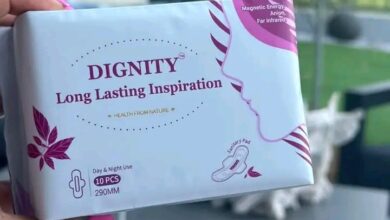How to start a Ethical fashion brand in South Africa

As the global demand for sustainable and ethical fashion continues to rise, entrepreneurs in South Africa have a unique opportunity to make a positive impact on both the fashion industry and the environment. Starting an ethical fashion brand not only allows you to contribute to social and environmental causes but also enables you to tap into a growing market of conscious consumers. In this article, we will guide you through the essential steps to establish your own ethical fashion brand in South Africa.
- Research and Identify Your Niche:
Begin by conducting thorough market research to understand the existing ethical fashion landscape in South Africa. Identify gaps and opportunities within the market and define your brand’s unique value proposition. Consider factors such as the use of sustainable materials, fair trade practices, cruelty-free production, and community engagement. By identifying your niche, you can position your brand effectively and attract your target audience.
- Develop a Solid Business Plan:
A well-structured business plan is crucial for the success of your ethical fashion brand. Define your brand’s vision, mission, and core values. Determine your target market and outline your marketing and sales strategies. Additionally, outline your sourcing and production processes, financial projections, and growth plans. A comprehensive business plan will not only guide your operations but also attract potential investors or funding opportunities.
- Establish Sustainable Supply Chains:
Ethical fashion brands prioritize transparency and sustainable sourcing practices. Partner with suppliers who share your values and prioritize fair labor, eco-friendly materials, and ethical production processes. Look for local suppliers and artisans who can contribute to your brand’s story and support the local economy. Ensure that your supply chain adheres to environmental and social standards, such as using organic or recycled fabrics and providing fair wages and safe working conditions.
- Design with Sustainability in Mind:
Incorporate sustainability into your product design and development processes. Create timeless and durable pieces that promote slow fashion, as opposed to disposable or trend-driven clothing. Consider using eco-friendly materials like organic cotton, hemp, bamboo, or recycled fabrics. Minimize waste by implementing efficient cutting techniques and repurposing leftover materials. Emphasize quality and craftsmanship to create garments that will last.
- Focus on Branding and Marketing:
Develop a strong brand identity that resonates with your target audience. Craft a compelling brand story that communicates your ethical values and mission. Establish an online presence through a well-designed website and social media platforms to showcase your products and engage with your customers. Leverage content marketing strategies to educate your audience about the importance of ethical fashion and the positive impact they can make by supporting your brand.
- Engage in Community and Collaboration:
Building relationships with like-minded organizations and individuals can amplify your brand’s impact. Collaborate with local artisans, cooperatives, and non-profit organizations to promote ethical practices and create opportunities for social upliftment. Participate in community events, workshops, and initiatives to raise awareness and connect with your target audience.
- Prioritize Transparency and Accountability:
Transparency is key to gaining the trust of your customers. Communicate openly about your supply chain, production processes, and any certifications or standards you adhere to. Consider implementing third-party certifications such as Fair Trade or GOTS (Global Organic Textile Standard) to verify your ethical claims. Regularly evaluate and improve your practices to ensure continuous progress towards sustainability.
Starting an ethical fashion brand in South Africa allows you to contribute to a global movement towards sustainable and conscious fashion. By conducting thorough research, developing a solid business plan, establishing sustainable supply chains, and focusing on branding and marketing, you can position your brand for success. Embrace transparency and accountability while engaging with your community and collaborating with like-minded partners. With determination and a commitment to ethical values, you can build a fashion brand that not only offers stylish products but also contributes to a better world.




